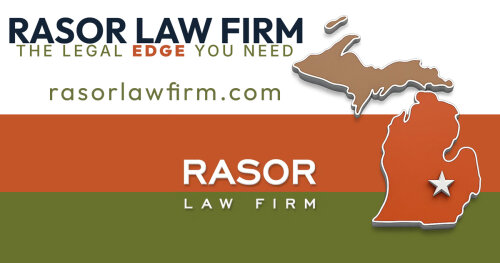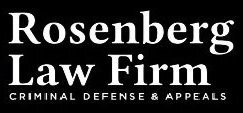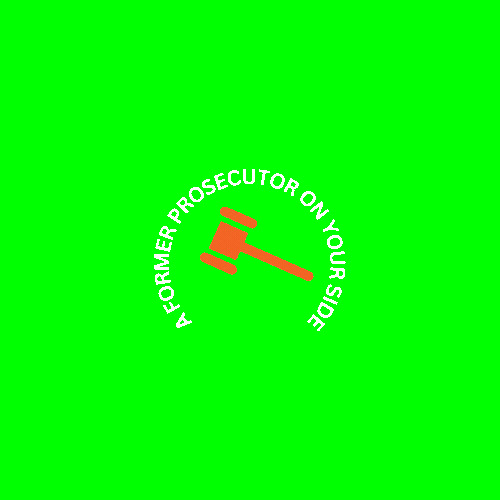Best Drug Crime Lawyers in Maryland
Share your needs with us, get contacted by law firms.
Free. Takes 2 min.
Or refine your search by selecting a city:
List of the best lawyers in Maryland, United States
About Drug Crime Law in Maryland, United States
Drug crime law in Maryland covers a wide range of offenses involving controlled substances, such as marijuana, cocaine, heroin, prescription drugs, and other illegal narcotics. The state classifies these substances and regulates their possession, distribution, manufacturing, and trafficking. Maryland enforces strict penalties for drug crimes, which may include fines, probation, mandatory treatment programs, and imprisonment. The severity of penalties often depends on the type and quantity of the drug, whether the offense involved intent to distribute, previous criminal history, and the presence of aggravating circumstances such as drug crimes near schools. Understanding the complexities of Maryland’s drug crime laws is crucial for anyone accused or under investigation.
Why You May Need a Lawyer
Drug crime cases can have serious and lasting impacts on your life, including criminal records, loss of employment, suspension of driving privileges, and even loss of custody or housing opportunities. You may need a lawyer for situations such as:
- Being arrested or charged with possession, distribution, or trafficking of a controlled substance
- Receiving a summons for a drug-related misdemeanor or felony
- Facing investigation or search and seizure of your home, car, or property by law enforcement
- Being accused of prescription drug fraud or unauthorized use of prescription medication
- Alleged involvement in drug manufacturing or cultivation
- Having prior convictions that could result in enhanced penalties
- Desiring to challenge the legality of a search or arrest
- Seeking to expunge or seal a prior drug-related conviction
An experienced attorney can help you build a defense, protect your constitutional rights, negotiate with prosecutors, and guide you through court proceedings.
Local Laws Overview
Maryland law treats drug crimes based on the classification of the substance and the specific action involved. The key points to understand include:
- Controlled Dangerous Substances (CDS): Maryland classifies drugs into five schedules ranging from Schedule I (most dangerous, high potential for abuse and no accepted medical use) to Schedule V (less potential for abuse, accepted medical uses).
- Simple Possession: Being found with a small amount, particularly for marijuana, can be charged as a civil infraction, but larger amounts or possession of other drugs may lead to misdemeanor or felony charges.
- Possession with Intent to Distribute: Charges may apply if there is evidence suggesting an intent to sell or distribute, such as large quantities, packaging materials, scales, or large amounts of cash.
- Drug Paraphernalia: It is illegal to possess or sell devices used for consuming, packing, or preparing drugs.
- Prescription Fraud: Unauthorized use, forgery, or alteration of prescriptions is a criminal offense.
- Enhanced Penalties: Committing drug crimes in a school zone, involving minors, or previous convictions can increase penalties.
- Marijuana Laws: Small amounts of marijuana for personal use are decriminalized, but possession of more than 10 grams or intent to distribute remains a chargeable offense. Medical marijuana is legal for qualified patients with state-issued cards.
- Drug Court: Maryland offers diversion programs and treatment courts for eligible offenders aiming at rehabilitation instead of incarceration.
It is important to remember that federal drug laws also apply, and in certain scenarios, offenses may be prosecuted in federal court with even harsher penalties.
Frequently Asked Questions
What happens if I am caught with a small amount of marijuana in Maryland?
Possession of less than 10 grams of marijuana for personal use is treated as a civil infraction and is punishable by a fine. Possession of more than 10 grams is a misdemeanor, and higher amounts or intent to distribute can lead to felony charges.
Is medical marijuana legal in Maryland?
Yes, qualified patients with a recommendation from a registered provider and a state-issued medical card can legally possess and use medical marijuana.
What should I do if I am arrested for a drug crime?
Remain calm, exercise your right to remain silent, do not consent to searches or make statements without consulting a lawyer, and request to speak with an attorney as soon as possible.
Can the police search my car or home without a warrant in Maryland?
Police generally need a warrant or probable cause to search your property. However, there are exceptions such as consent, exigent circumstances, or incident to lawful arrest. Illegally obtained evidence can sometimes be suppressed in court.
What is the difference between possession and possession with intent to distribute?
Simple possession means you have a controlled substance for personal use. Possession with intent to distribute means there is evidence suggesting you intended to sell or distribute the drugs, which is a more serious offense.
Can I get a drug charge expunged from my record in Maryland?
Certain drug charges and convictions may be eligible for expungement after specific waiting periods or if you were found not guilty. The process can be complex, so consult an attorney for your specific situation.
What are the penalties for prescription drug fraud?
Penalties include fines, jail time, and possibly felony charges depending on the circumstances. Prescription fraud can involve obtaining drugs through forgery, misrepresentation, or theft.
Does Maryland have diversion or drug court programs?
Yes, for some non-violent offenders, Maryland offers drug court and diversion options focusing on treatment and rehabilitation as alternatives to incarceration.
If convicted of a drug crime, will I lose my driver’s license?
Maryland law does not mandate automatic license suspension for all drug offenses, but certain convictions may result in suspension or revocation. Additionally, federal law and specific cases involving vehicles may include driver's license sanctions.
Can I be prosecuted under federal law for a drug crime in Maryland?
Yes, in some situations, federal authorities may bring charges, especially if the offense involves large quantities, trafficking across state lines, or federal investigative agencies.
Additional Resources
If you need more information or assistance regarding drug crime charges in Maryland, consider the following resources:
- Maryland Judiciary Case Search for court information and case status
- Maryland Office of the Public Defender for free or low-cost legal representation if you qualify
- Maryland Department of Health for substance abuse treatment programs and mental health services
- Maryland State Bar Association for lawyer referrals and legal resources
- Local legal aid offices or clinics for pro bono or reduced-fee services
- Substance Abuse and Mental Health Services Administration (SAMHSA) for national resources and helplines
Next Steps
Facing a drug crime charge in Maryland is a serious matter. Here is how you should proceed:
- Do not discuss your case or details of your arrest with anyone except your attorney
- Contact a qualified criminal defense lawyer experienced in Maryland drug law as soon as possible
- Gather and organize any relevant documents such as the police report, bail papers, and evidence
- Attend all court hearings and comply with any release conditions or treatment requirements
- Explore eligibility for diversion programs or drug court if you are struggling with substance abuse
- Ask your lawyer about your options for expungement or record relief if you have a previous conviction
Legal guidance is essential to protect your rights and work toward the best possible outcome in your case. If you do not have a private attorney, reach out to the Maryland Office of the Public Defender or a local legal aid organization to get help.
Lawzana helps you find the best lawyers and law firms in Maryland through a curated and pre-screened list of qualified legal professionals. Our platform offers rankings and detailed profiles of attorneys and law firms, allowing you to compare based on practice areas, including Drug Crime, experience, and client feedback.
Each profile includes a description of the firm's areas of practice, client reviews, team members and partners, year of establishment, spoken languages, office locations, contact information, social media presence, and any published articles or resources. Most firms on our platform speak English and are experienced in both local and international legal matters.
Get a quote from top-rated law firms in Maryland, United States — quickly, securely, and without unnecessary hassle.
Disclaimer:
The information provided on this page is for general informational purposes only and does not constitute legal advice. While we strive to ensure the accuracy and relevance of the content, legal information may change over time, and interpretations of the law can vary. You should always consult with a qualified legal professional for advice specific to your situation.
We disclaim all liability for actions taken or not taken based on the content of this page. If you believe any information is incorrect or outdated, please contact us, and we will review and update it where appropriate.
Browse drug crime law firms by city in Maryland
Refine your search by selecting a city.















